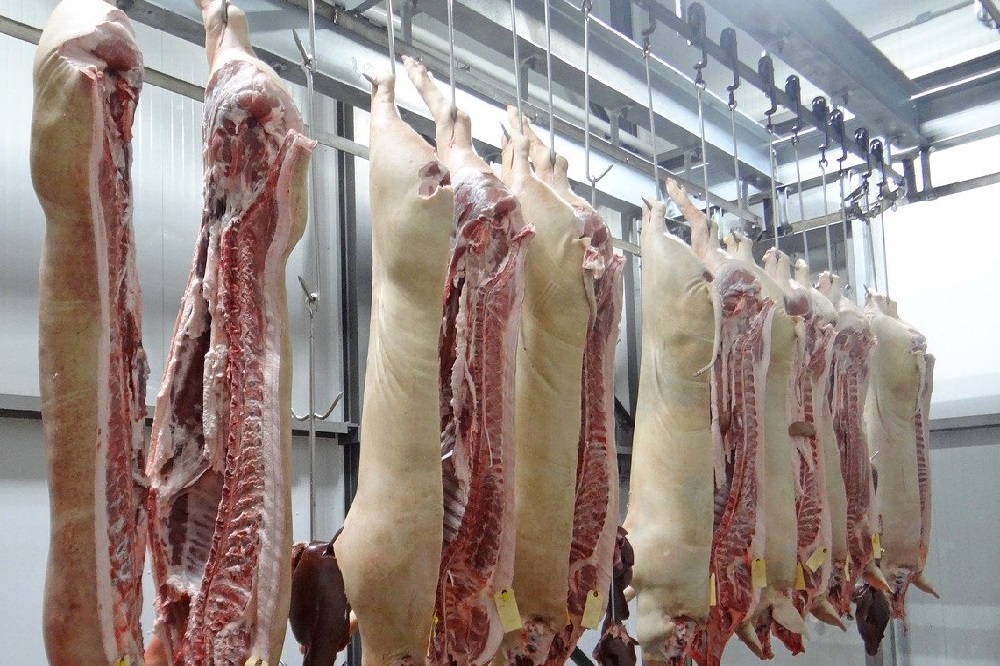Changing diet choices may help cut greenhouse gases

Planet-warming greenhouse gas emissions from global food supply chains could fall by 17% if people change their food choices towards more plant-based diets, a new study reveals.
More than half of the global population (56.9%) are currently over-consuming and would save nearly a third (32.4%) of global dietary emissions by switching to the plant-forward planetary health diet proposed by the EAT-Lancet Commission, according to the research.
The team, led by the University of Groningen with support from Cardiff University, says introducing incentives, such as carbon pricing, eco-labelling, and expanding the availability of less emission-intensive products such as vegetarian foods, can encourage consumers to make dietary changes.
Their study, published in Nature Climate Change, notes the switch would also balance a 15.4% increase in global dietary emissions from under-consuming populations as they move toward diets with health and climate benefits.
The study shows that affluent countries consume high-emission diets but display relatively lower levels of inequality, while many poor countries tend to have diets with lower emissions but higher levels of inequality.
Policy efforts
Lead author Yanxian Li, a PhD student at the University of Groningen, said: “The objective of the diet shift scenario is to assess the potential implications of emission mitigation of the food system resulting from changing consumer choices instead of forcing everyone to adopt the same diet.”
The researchers say a well-designed food environment can reshape residents’ dietary patterns and parallel development of urban planning and infrastructure can help to reduce the time and financial barriers stopping people from adopting healthier and more environmentally sustainable diets.
One of the study’s authors Dr Pan He, a Lecturer in Environmental Science and Sustainability at Cardiff University, said: “Countries should prioritise specific measures that adapt to their socio-economic status to maximise the benefit of any food policy design.
“This is not always straightforward though, particularly for countries undergoing rapid socio-economic transformation where more research is needed on what makes the most effective measures.”
While shifts may not be feasible in countries such as Mongolia, where diets rely heavily on red meat and dairy products due to traditional nomadic lifestyles, there is still a need to improve national nutritional education, the team argues.
Their research shows poor populations often opt for lower-cost, calorie-dense foods with less nutritional benefit.
To combat this, policy efforts must focus on making healthy and nutritious food more affordable and accessible, especially for lower expenditure groups where high cost and low affordability remain the largest barriers to healthier diets, the team says.
Cost
Dr Pan He, Lecturer in Environmental Science and Sustainability, said: “What we really need is to lower the cost to serve and cook meals that form a sustainable dietary pattern, making these choices affordable and convenient to all.
“A combination of regulations of food supply, dietary education, innovation in business models in the catering industries, and other essential measures are therefore necessary in realising such a goal.”
The study also uncovers the extent of inequality of dietary emissions within countries based on detailed household expenditure survey data compiled from various sources.
The researchers found composition of global food production would need to change considerably to adapt to the substantial changes in demand if the meat-to-plant pathway is to be followed.
Diet shifts would need the global supply in calorie content of red meat to decrease by 81%, all sugars by 72%, tubers (potato-like root vegetables) by 76%, and grains by 50%. while that of legumes and nuts increase by 438%, added fats by 62%, and vegetables and fruits by 28%.
These kind of changes in food demand could cause fluctuating prices of agricultural products and land in global markets, triggering spillover effects between different food categories or to other non-food sectors – such as stimulating biofuel production.
Such measures could partly offset the benefits of diet shifts, the researcher warn.
Corresponding author, Professor Klaus Hubacek from the University of Groningen, said: “Diet shifts need increased food consumption, but Sub-Saharan Africa, as well as South and Southeast Asia, have experienced stagnating agriculture production efficiency for decades and cannot produce nor afford to import the required food.
“Agricultural efficiency must increase through various measures such as crop and soil management techniques and introduction of high-yielding crop varieties. But the proportions of nutrient-rich products in food imports must increase – alongside a reduction in restrictive trade policies which tend to raise food prices.”
Their paper, ‘Reducing climate change impacts from the global food system through diet shifts,’ is published in Nature Climate Change.
Support our Nation today
For the price of a cup of coffee a month you can help us create an independent, not-for-profit, national news service for the people of Wales, by the people of Wales.






Why are you using a picture of pig carcasses for an article that is (basically) promoting a plant based diet?
I’m mature and well-informed enough to manage my own diet thanks.
Just eat the salad with the steak, and increase the nut intake simple really.
This conclusion of this paper is flawed as it assumes that the same global food chain exists for different types of food. Not the case. The global food chain of meat is restricted by it’s perishability (or transport cost of frozen) whereas no such restriction applies to dried bulk foods such as nuts and grains. The ‘scatter plots’ in the paper shows this. What is evident is that the EAT-Lancet planetary diet based on flaws in the methodology used for health estimates and the reason why the World Health Organization withdrew its sponsorship. The reality is in places where you… Read more »
very straightforward when people just heed the evidence rather than attempt to warp it to their own agendas.